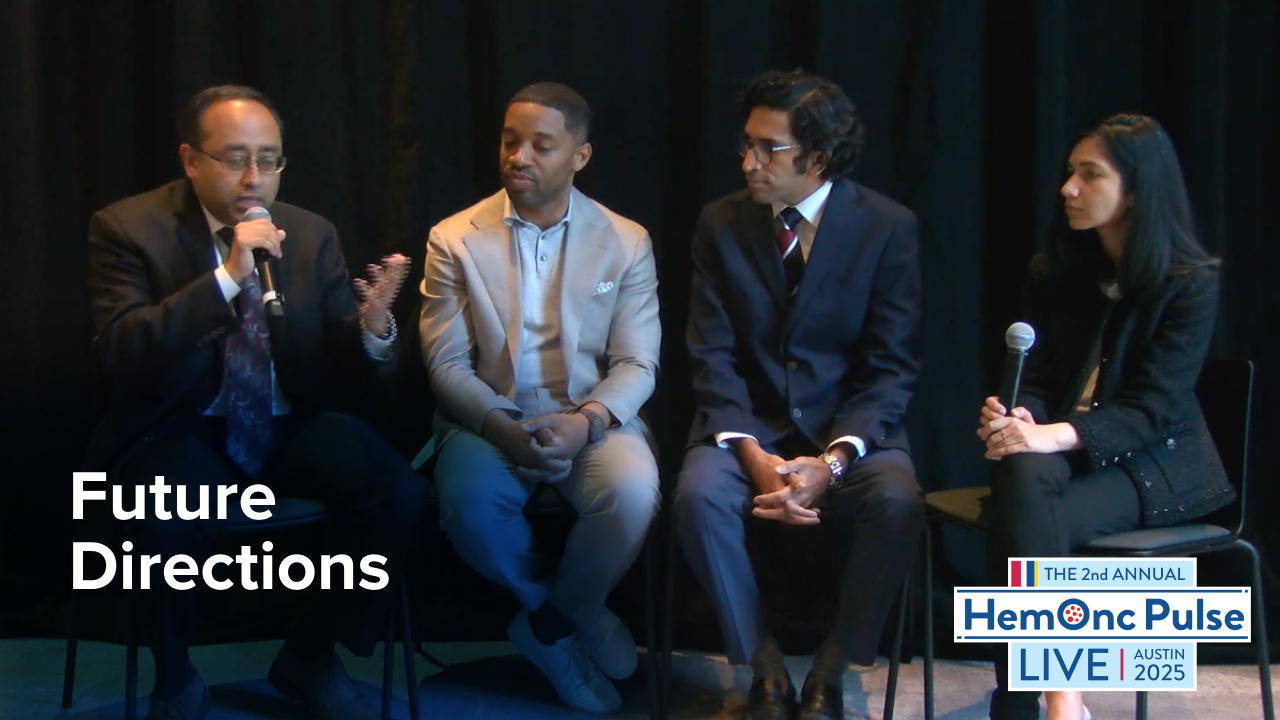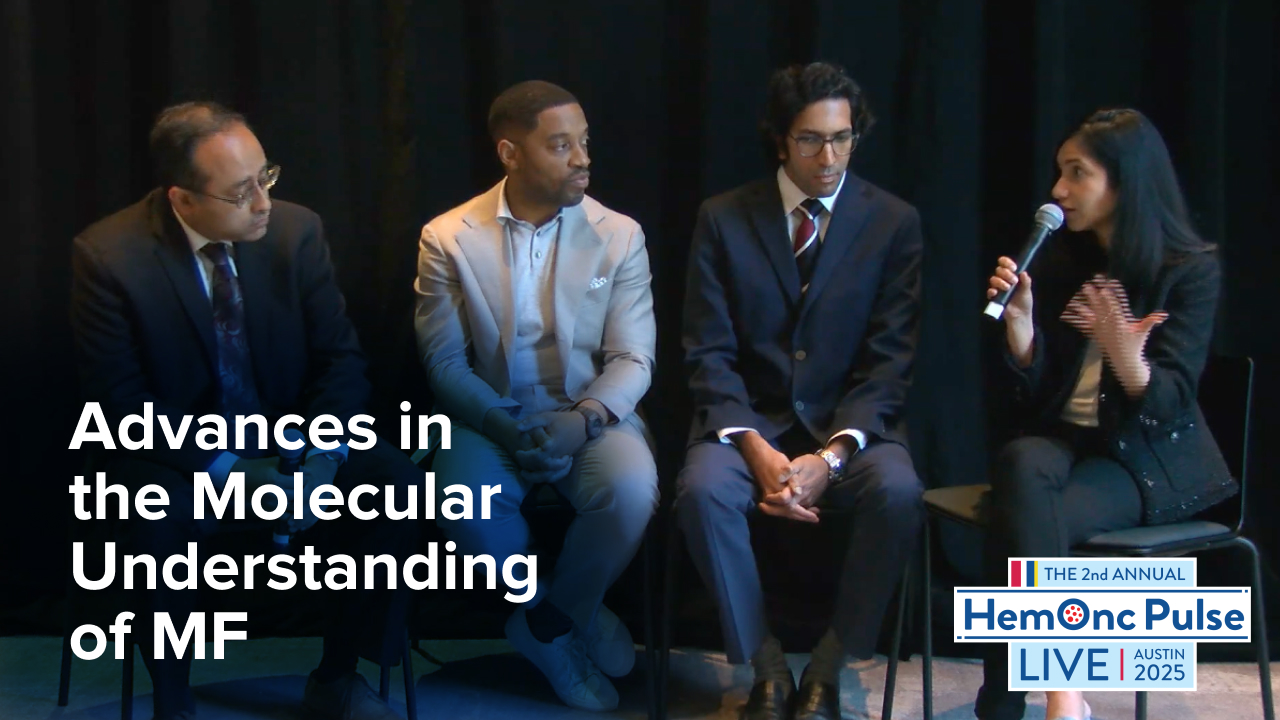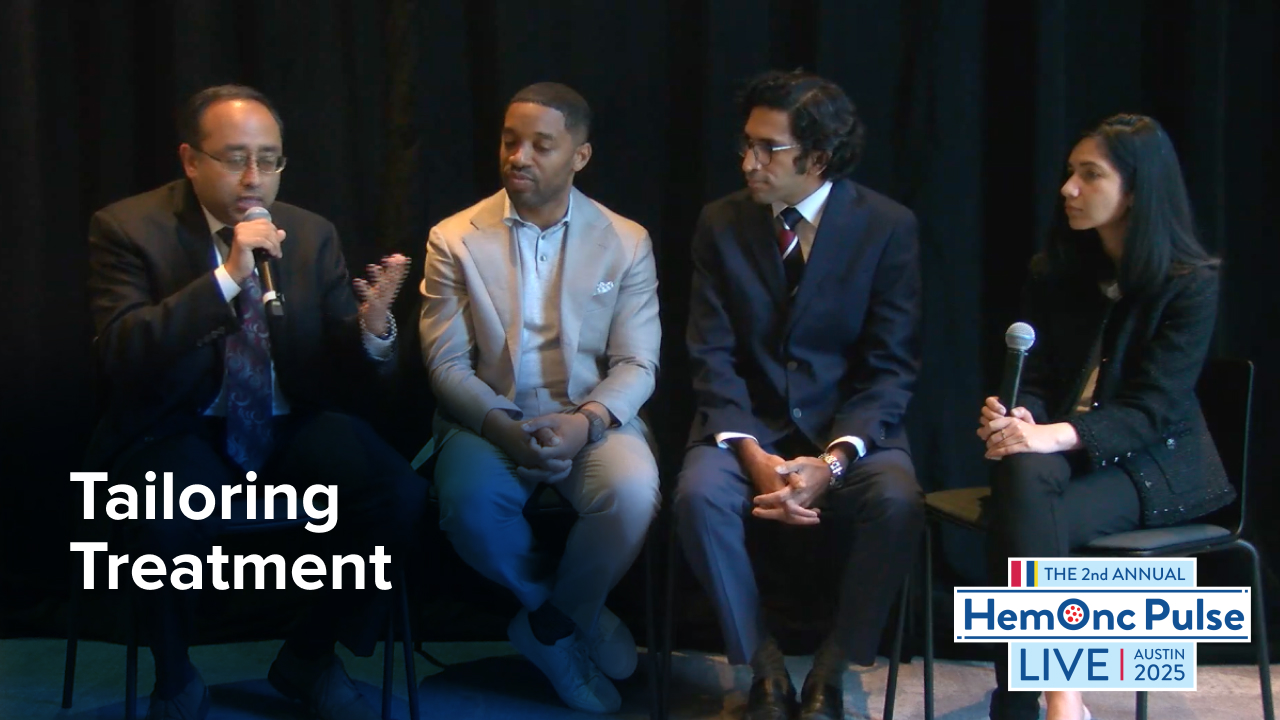
The combination of selinexor plus ruxolitinib was found to be well tolerated and manageable in JAK inhibitor (JAKi)-naïve patients with myelofibrosis (MF), according to a recent trial.
Researchers also observed potential disease modification via rapid stabilization of platelets, stable hemoglobin levels and median platelet count, variant allele frequency (VAF) reduction, and pro-inflammatory cytokine reduction among patients.
The phase I study, led by Srinivas Tantravahi, MBBS, MRCP, of the University of Utah in Salt Lake City, included 24 patients receiving at least one dose of selinexor. Ten patients received selinexor at 40 mg, and 14 received selinexor at 60 mg.
Researchers assessed safety, spleen volume reduction of ≥35% (SVR35), and total symptom score reduction of ≥50% (TSS50). SVR35 at week 24 was achieved by 40% of patients in the 40 mg cohort and 79% of the 60 mg cohort, while TSS50 was achieved by 10% and 58% of patients, respectively. The most common adverse events (AEs) included nausea (75%), fatigue (58%), anemia (54%), and thrombocytopenia (54%).
According to mutation analysis, no patients were triple-negative. Eighteen patients harbored JAK2 mutations, five with CALR, and one with MPL. Of 13 patients with available data after week 24, five (38%) had a reduction of VAF that was ≥20%. Three of five of those patients had high VAF (>50%) driver mutations at baseline.
Researchers also evaluated a panel of 74 cytokines in 21 MF patients with both baseline and week two samples, including 10 patients with end-of-treatment [EOT] samples, and in 10 healthy donors. Comparing baseline MF samples with healthy samples, 50% of the analyzed cytokines were elevated. Researchers observed a “rapid and durable” reduction of pro-inflammatory MF-relevant cytokines in most patients at week two through EOT, including TGF-β1, IFNɣ, TNF-α, IL-7, IL-1Ra, and IL-16. The decrease in IL-18 correlated to SVR and TSS response at week 24.
“Promising biomarker and efficacy data suggests that [selinexor] in combination with [ruxolitinib] has the potential to become a novel, first-line treatment for [patients] with MF,” the researchers concluded.
Reference
Tantravahi K, Kishtagari A, Maher K, et al. Selinexor Plus Ruxolitinib in JAK Inhibitor (JAKi)-Naïve Patients with Myelofibrosis: Long term follow up from XPORT-MF-034 suggestive of disease modification. Abstract #622. Presented at the 65th ASH Annual Meeting and Exposition; December 9-12, 2023; San Diego, California.






 © 2025 Mashup Media, LLC, a Formedics Property. All Rights Reserved.
© 2025 Mashup Media, LLC, a Formedics Property. All Rights Reserved.